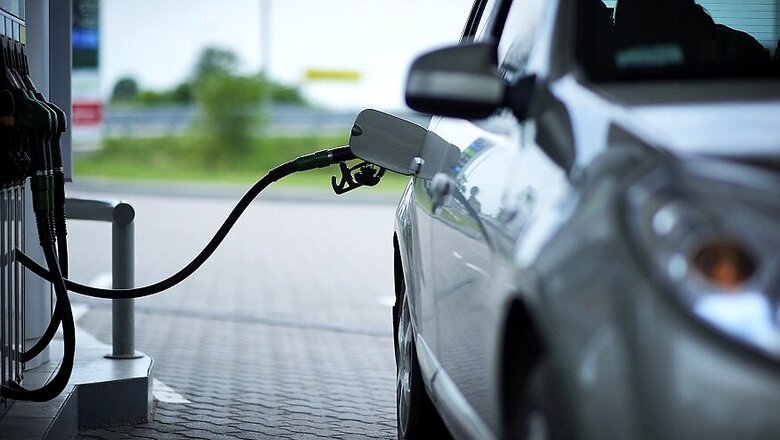
views
Do you know what it really means when the fuel light in your car goes on? Maybe you’ve heard that you get more mileage when you fill your tank in the morning? There was even a rumor that your car will go faster if you put jet fuel in it – sounds exciting, but is it true?
Colin Harding is a senior engineer with the Ford team that designs what a driver sees in the ‘instrument cluster’ where the speedo is. Harding and his team are experts in everything related to mileage, and so they spend a lot of time deliberately trying to make cars run out of fuel.
Here, Harding debunks five of the most common myths associated with fueling your car.
Filling your tank in the morning gets you more mileage
Good try, but no. The theory behind this myth is that petrol expands with heat – which is true – so if it’s cooler, you can fit more of it into your tank. But the fact is fuel is stored in tanks below ground where the rising temperature of the day plays no part in the density of the petrol, so fill up whenever you wish.
Letting your fuel run low is bad for your engine
Nope. “The common misconception here is that if you drive on ‘the fumes’ your engine will begin to ingest ‘rubbish’ or sediment-littered fuel from the bottom of the tank. But the fuel tank is designed so that the fuel pickup always sips from the bottom of the tank, meaning it is always able to draw fuel. Contrary to popular belief, when you’re running low the quality of the fuel being used by the engine is no different to when the tank is full."
Premium fuel makes your non-premium car run better
False. When we pull up to the pump, there are more options than ever; words like power and premium, and enough different oils and lubricants to drive anyone mad. And while it may be more expensive, it isn’t any cleaner or purer than regular fuel.
“While it is less combustible, which benefits powerful performance engines, it won’t benefit the vehicles of most daily drivers as all types of fuel have to meet the same standards."
My range readings are wrong
Unlikely: while the fuel gauge tells drivers exactly how much fuel is in the tank, range readings are calculated based on longer term driving patterns. It’s not always clear where myths come from, how they catch on, or why misconceptions can sometimes become the perceived rule. But now you know that following these myths would not get you to save fuel, but the tips below surely can.
However, how you take care of your vehicle can have a big effect on how much fuel you use. Here are a few fuel efficiency maintenance tips that can help you keep more money in your wallet!
Keep your engine tuned: Fixing a vehicle that is noticeably out of tune or has failed an emissions test can improve fuel economy by an average of four percent. But here’s the real bonus: Replacing a malfunctioning oxygen sensor can improve your mileage by as much as 40 percent.
Keep your tires properly inflated: Properly inflated tires are safer, handle better, last longer, and get better fuel economy. The operating vehicle tire inflation pressure can be found on a certification label, usually located on the driver’s door, a door pillar or the glove box. Just be careful not to exceed the operating tire pressure either, because overinflating tires reduces their performance in terms of traction and lifespan.
Use the recommended grade of motor oil: Following the manufacturer's recommended grade of motor oil in your Owner’s Guide will keep your engine’s lubrication system working as efficiently as possible. Using the wrong grade of oil can drop fuel economy by up to two percent.
All the little things can add up: The technicians at your local Ford dealership are trained to optimize your fuel economy. Along with the above-mentioned maintenance, they can change worn fuel filters and spark plugs, perform wheel alignments, and inspect your exhaust and emissions systems. Together, all of these vehicle maintenance procedures and driving behaviors can improve mileage by up to 25 percent.
Also Watch: Vimal sumbly, MD, Triumph Motorcycles India | Interview



















Comments
0 comment